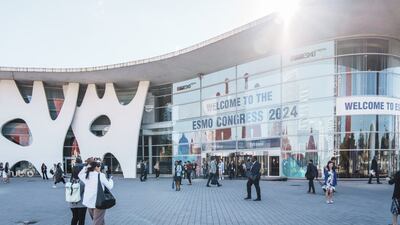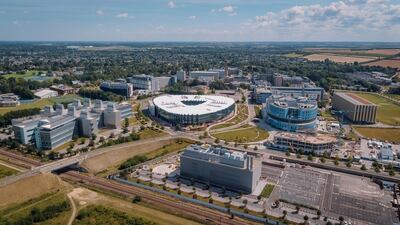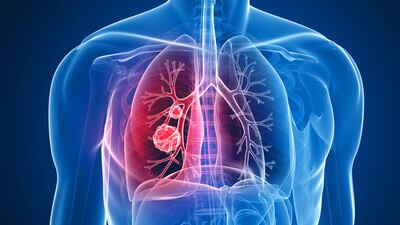ESMO
Attendees at this year's European Society for Medical Oncology meeting in Barcelona can look forward to a range of interesting datasets, from Phase III trials of established products in new settings to preliminary studies of novel products coming through the pipeline.
J&J acquired Taris in 2019 to gain access to TAR-200 and its drug delivery platform. Now, early clinical data suggest the product could delay or remove the need for cystectomy in several bladder cancer settings and the US healthcare giant is eyeing multi-blockbuster sales.
The Barcelona meeting saw early data from two candidates from Incyte and Pfizer which suggest some progress for a new drug mechanism that has so far underwhelmed.
New Phase II data for the bispecific antibody show promise in colorectal cancer as the company seeks to spread the bispecific antibody’s wings. Phase III trials are on the horizon, where it will need to go up against standard of care.
AstraZeneca’s NIAGARA trial of perioperative Imfinzi in bladder cancer was positively received at the ESMO meeting but its design did not distinguish the contributions of each treatment portion to the overall effect – something that the US FDA is likely to have a view on.
Persistence has paid off for Incyte’s Zynyz in anal cancer with a Phase III win that should make up for a previous disappointment at the FDA and give a boost to the firm’s pipeline prospects for a post-Jakafi era.
Revolution Medicines is aiming to go beyond Amgen and Mirati’s first-generation drugs with a multi-RAS targeting therapy - and despite a market sell-off after ESMO, analysts think the company think it is still on track.
The future for AstraZeneca/Daiichi Sankyo’s TROP2-targeted ADC candidate Dato-DXd is looking more positive after details of their TROPION-Lung01 and TROPION-Breast01 Phase III studies were presented at ESMO.
Scrip talked to Johnson & Johnson’s vice president of oncology global medical affairs, Mark Wildgust, about how the healthcare giant hopes to plant a flag on Tagrisso’s mountain with its trio of Phase III butterfly-themed studies for the bispecific antibody Rybrevant presented at ESMO.
Data from a histological subgroup have come to the rescue for AstraZeneca and Daiichi Sankyo’s investigational antibody-drug conjugate Dato-DXd along with reassurance over its safety profile in advanced NSCLC, while overall survival data are still awaited.
Decidedly mixed data from the MARIPOSA study released early from the ESMO meeting suggest that Johnson & Johnson’s Rybrevant poses less of a threat to AstraZeneca’s best-selling drug, Tagrisso, than had been mooted. More data on safety and overall survival should prove telling.
ADVERTISEMENT










